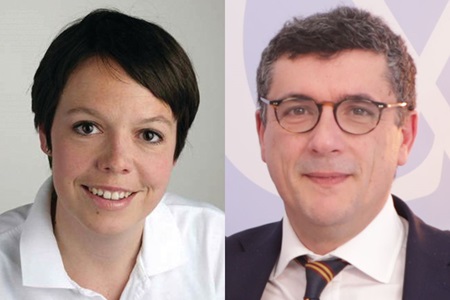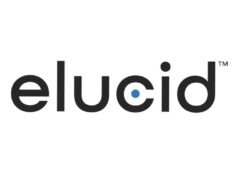
The programme for the 2024 Charing Cross (CX) symposium (23–25 April, London, UK) will see the topics of acute stroke care, carotid disease and neurointerventional surgery return with renewed vigour, thanks in no small part to five separate debate sessions, a ‘carousel’ of unique cases, and the first European presentation of PERFORMANCE II trial data.
“Debates already have a long tradition in the acute stroke sessions of CX,” said CX executive board member Barbara Rantner (Ludwig Maximilian University of Munich, Munich, Germany), speaking to NeuroNews. “This year’s programme touches on some controversial topics in decision making and technical novelties with experts in the field from all over the world. The majority of topics in stroke treatment are under discussion—some due to advances in medical treatment, others because of technical innovation. Good evidence is sometimes missing in those areas and, therefore, decision making is not simply ‘black or white’. With debates, we are able to illuminate critical issues from different points of view and thereby support opinion forming amongst the audience.”
The Acute Stroke, Carotid and Neurointervention Controversies session—set to take place on the morning of Wednesday 24 April in Theatre 3 at ExCeL London—will kick off with Ross Naylor’s (Leicester Vascular Institute, Leicester, UK) presentation tackling “unanswered questions” arising from the European Society for Vascular Surgery (ESVS)’s 2023 guidelines. Following this will be the first debate, with Konstantinos Antonopoulos (National and Kapodistrian University of Athens, Athens, Greece) and Rantner arguing for and against, respectively, the motion: “Patients with symptomatic near occlusion in the internal carotid artery (ICA) should only be treated medically”.
The second debate of the day, “Best medical treatment (BMT) only is as effective as carotid endarterectomy (CEA) or carotid artery stenting (CAS) in patients with symptomatic ICA stenosis”, will be contested by Melina Vega de Ceniga (Hospital Universitario Galdakao-Usansolo, Usansolo, Spain) arguing for and Richard Bulbulia (Cheltenham General Hospital, Cheltenham, UK) arguing against. And, in the morning’s third debate, Alun Davies (Imperial College London, London, UK) and Maarit Venermo (Helsinki University Hospital, Helsinki, Finland) will go head-to-head over the statement, “Patients with symptomatic carotid artery web should only be treated medically”, with the latter arguing against the motion.
This year’s programme will also play host to a number of case presentations within an Acute Stroke Controversies Carousel—Rantner is set to return to the podium to deliver the first of these cases, discussing considerations following the treatment of a post-dissection ICA aneurysm. Levansri Makalanda (Barts Health NHS Trust, London, UK), Gert J de Borst (University Medical Center Utrecht, Utrecht, The Netherlands), and CX executive board member Domenico Valenti (King’s College London, London, UK), will all share their experiences here as well, presenting “very difficult cases for which there is not yet a standardised treatment defined by guidelines”, according to Valenti.
“We are—for the first time—providing some exciting case carousels for the audience,” Rantner noted. “This will allow us to discuss rare clinical cases in detail and share good, but also probably bad, outcomes. Everybody is very welcome to interactively participate in the case presentations and offer their suggestions for solutions.”
“These are special cases where we do not necessarily know what to do,” Valenti added. “We want to show what we did, and what went right and what went wrong, because this will stimulate the audience to contribute actively during the session.”
Another potential programme highlight will see Dominick McCabe (University of Dublin, Dublin, Ireland) deliver a keynote lecture on the role of patient selection and timing in mechanical thrombectomy for stroke. Shortly following this will be a debate over the motion, “Patients with vertebro-basilar ischaemia should be treated with endovascular intervention”, pitting Makalanda and Francesco Spinelli (Universita Campus Bio-Medico di Roma, Rome, Italy) against one another.
In the latter part of the session, there will be an increased focus on CAS—initially, with a debate entitled, “CAS is the treatment of choice for underlying ICA stenosis after mechanical thrombectomy”, which will be argued for and against by Naga Kandasamy (King’s College London, London, UK) and Franco Grego (University of Padua, Padua, Italy), respectively. Later in the morning, Christoph Metzger (Holston Valley Medical Center, Kingsport, USA), William Gray (Lankenau Heart Institute, Wynnewood, USA) and Piotr Musialek (Jagiellonian University, Krakow, Poland) will all deliver talks on the latest technologies and issues in carotid stenting as well.
Towards the end of the Acute Stroke, Carotid and Neurointervention Controversies programme, audiences will be treated to the first ever European presentation of data from PERFORMANCE II, with Ralf Langhoff (Sankt Gertrauden-Krankenhaus, Berlin, Germany) detailing findings on a novel carotid stent system observed within this prospective, randomised study.
“The implications from the results of the PERFORMANCE II trial are that procedural embolic protection is the most important aspect in minimising stroke during CAS, and the Neuroguard three-in-one carotid stent system [Contego Medical] with 40-micron protection will be a transformational technology for the treatment of carotid artery disease,” Langhoff told NeuroNews.
To register for in-person and/or virtual attendance at this year’s CX symposium, click here.









